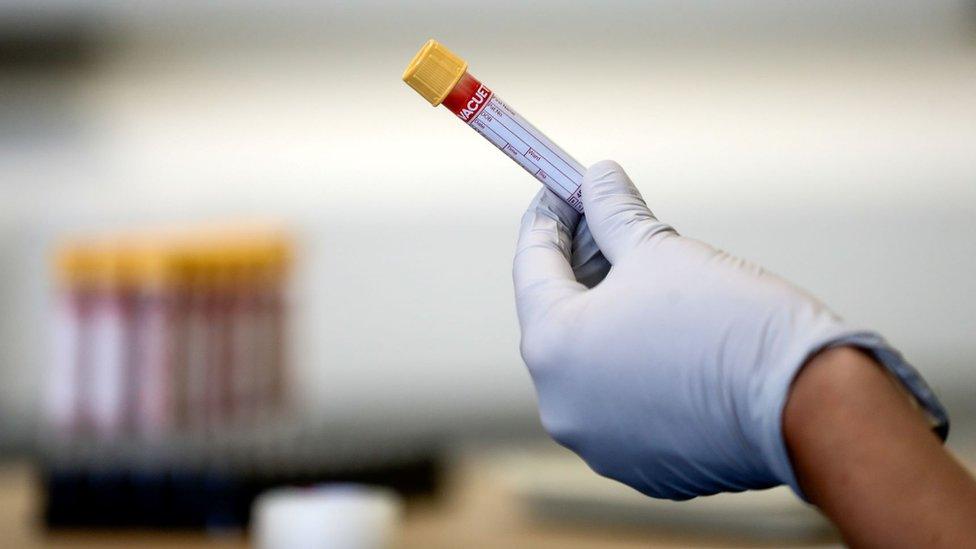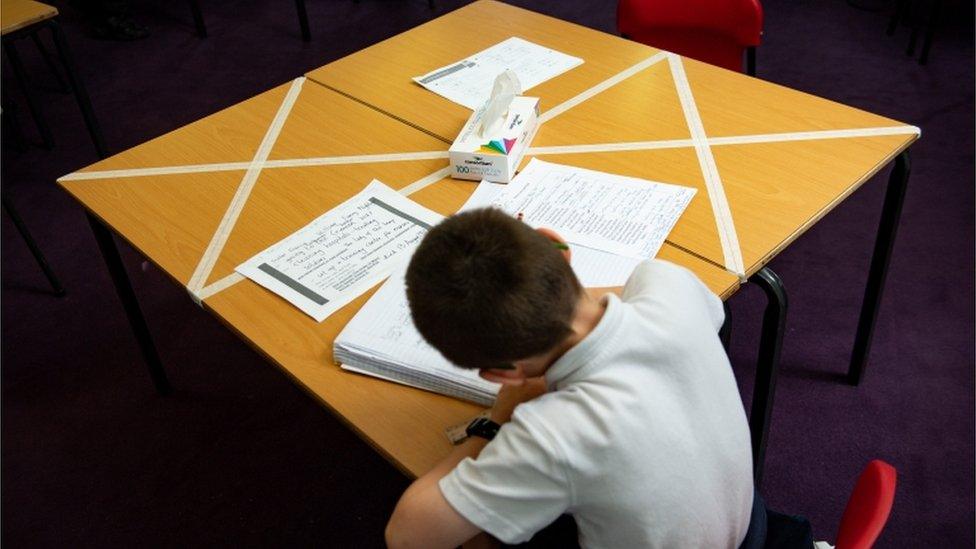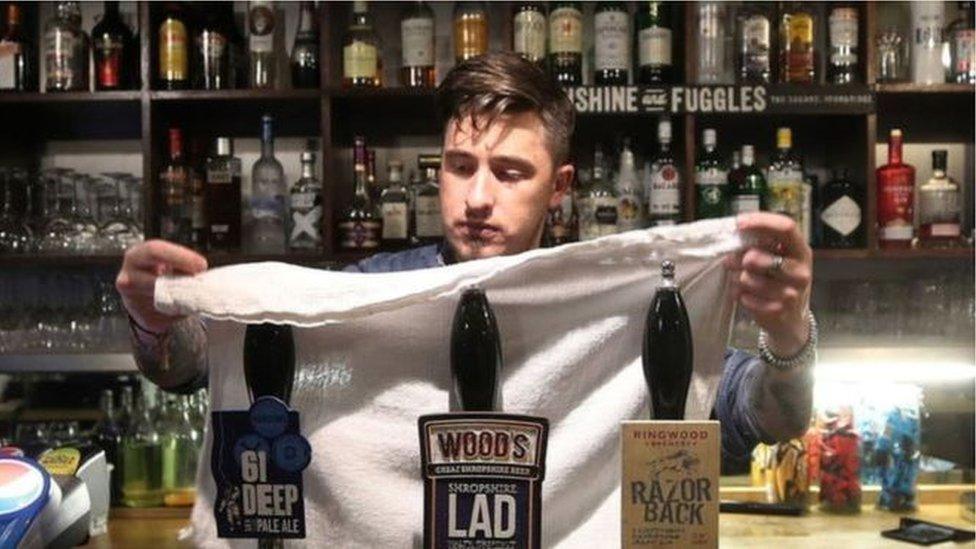Coronavirus: More Irish areas could come under Covid restrictions
- Published

On Saturday, the Irish Department of Health announced one further coronavirus-linked death
Restrictions put in place in Kildare, Laois and Offaly could apply to other areas in the future, Ireland's acting chief medical officer has said.
Residents are not permitted to travel beyond those counties except in limited circumstances.
The restrictions, announced on Friday in response to a spike in cases of Covid-19, came into effect at midnight.
Cafés, restaurants and bars have been closed, and there will be no sporting events.
Cinemas and gyms were also closed under the restrictions, which will remain in place for two weeks.
"It won't take much for other regions to have a problem as well," Dr Ronan Glynn told RTÉ.
"We need everyone to be cautious and follow public health guidelines."
'Compassionate grounds'
On Saturday, the Irish Department of Health announced one further coronavirus-linked death and 174 new cases, 110 of them in County Kildare.
Dr Glynn said the National Public Health Emergency Team had been expecting an increase in cases.
"Throughout this week, we have been testing all workers in facilities where outbreaks of Covid-19 have been identified as well as close contacts of those people who have received Covid positive results," he said.
"Our priority now and our reason for recommending the proactive measures, is to avoid these cases and clusters leading to widespread community transmission of the disease."
Under the restrictions residents will be permitted to travel outside of the three counties for the following reasons:
To travel to and from work, where it is not possible to work from home
To attend medical appointments and collect medicines and other health products
For vital family reasons such as caring for children, elderly or vulnerable people - but excluding social visits
For farming purposes including food production and care for animals.
People are being asked not to travel to these counties unless for work.
Visits to nursing homes, prisons and acute settings in these three counties should be suspended, except on compassionate grounds.
Allow X content?
This article contains content provided by X. We ask for your permission before anything is loaded, as they may be using cookies and other technologies. You may want to read X’s cookie policy, external and privacy policy, external before accepting. To view this content choose ‘accept and continue’.

Checkpoints have been set up by Gardaí (Irish police) in areas near the borders of the counties to ensure the public are complying with the restrictions.
Places of worship may remain open for private prayer, but the government is urging Masses and religious services to be delivered online. A maximum of 25 people can attend funerals.
No sporting events or matches should take place, however, non-contact sports and training may continue outdoors, subject to a maximum of 15 people.
All indoor gatherings including any type of household, private family or social indoor gatherings of people will be restricted to a maximum of six people from no more than three households in total.
'Equal responsibility'
In a televised address on Friday evening, Taoiseach (Irish PM) Micheál Martin said clusters were a "serious concern" and "we must protect public health", adding that "everything else is secondary to that".
He said while the government would do everything possible to prevent a return to high levels of transmission, citizens held an "equal responsibility".
"Pause and reflect on what you can do to support those businesses adhering to the advice and steer clear of those who are not," he said.
He urged people to live the words of the late SDLP leader John Hume, who said "solidarity is strength".
A large number of the Kildare cases are linked to outbreaks in meat and food processing factories.
One Kildare employer, O'Brien Fine Foods, in Timahoe, confirmed it had suspended operations after 80 of its staff tested positive for Covid-19.
In a statement, the food company said it had engaged a private testing provider and added "the level of asymptomatic infectivity appears to be very high".
Earlier this week, Prof Philip Nolan from the National Public Health Emergency Team confirmed that the Republic's of Ireland's R rate was now estimated to be 1.8.
The R rate, or reproduction rate, refers to the average number of people a newly-infected person is expected to pass the virus on to after contracting the disease.
Prof Nolan said a reproduction number of almost two is a "serious concern".
He added that "although we have not yet seen a significant increase in community transmission, there is a significant risk this could develop over the coming days and weeks".
- Published7 August 2020

- Published4 August 2020
